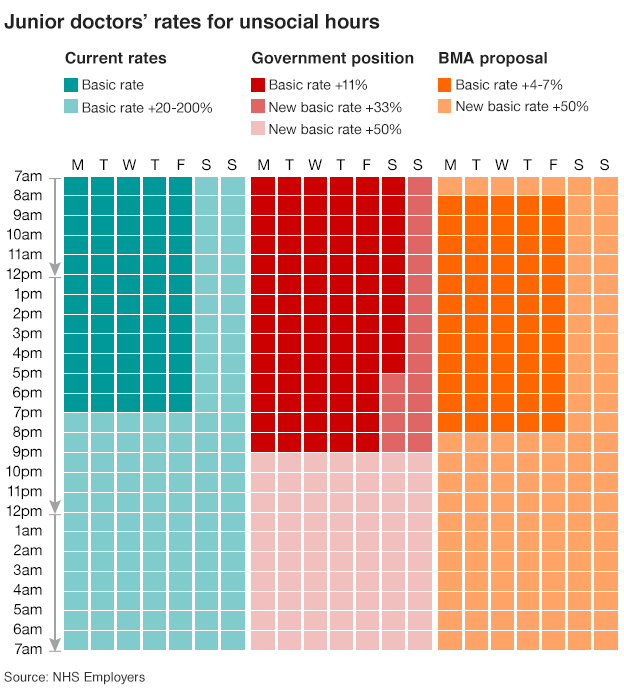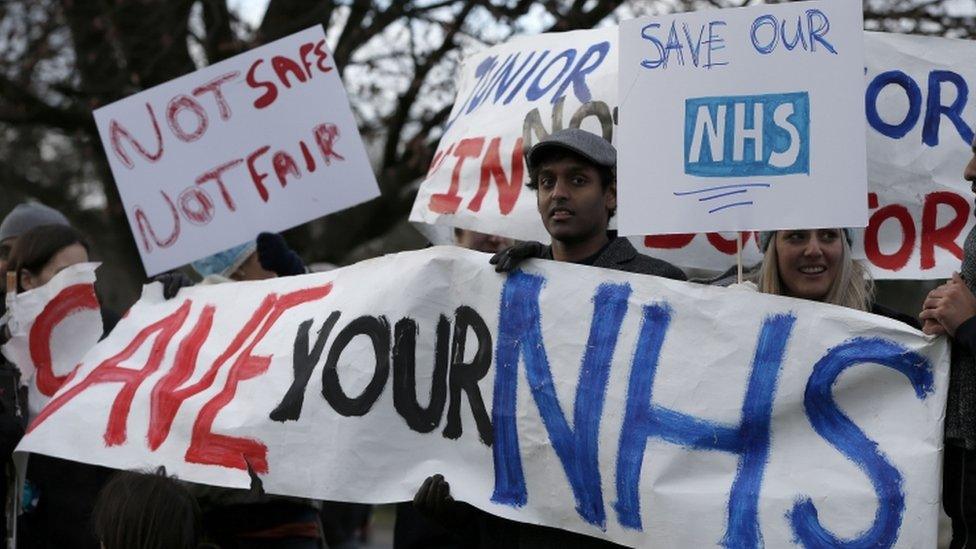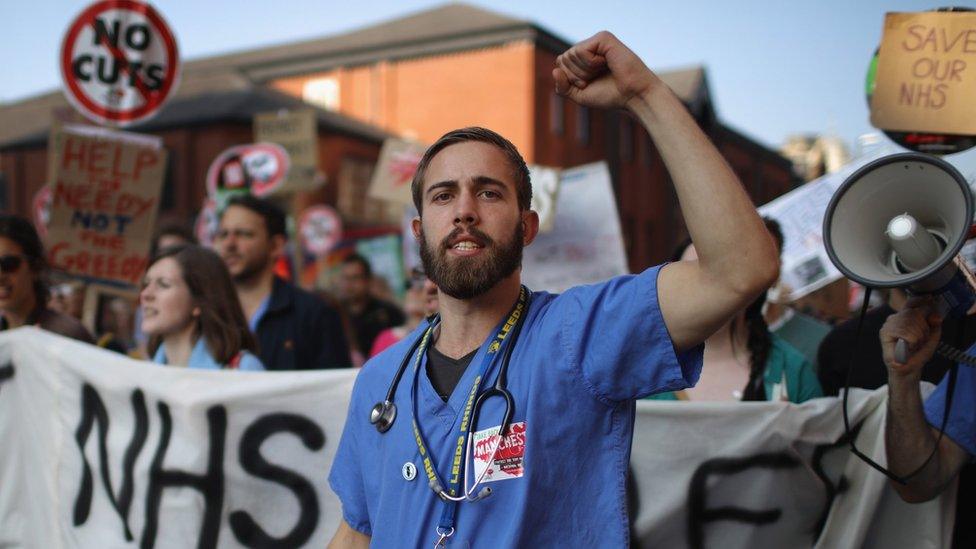Junior doctors' row: How close did they come to a deal?
- Published

Junior doctors are taking part in their second 24-hour strike on Wednesday. It comes after the latest round of talks with the government over a new contract failed to reach an agreement.
Sir David Dalton, the hospital boss brought in to try to broker a deal, said there had been good progress. So how close did both sides get?

Saturdays - the biggest bone of contention
The talks undoubtedly broke down - perhaps irreparably - over payments for working on Saturday.
Ministers want daytime hours to be classed as a normal working day.
But negotiators did offer doctors a little more than they previously had. They suggested unsocial hours - for which extra premiums are paid - could start from 17:00 instead of 19:00.
However, the British Medical Association has refused to accept that Saturday should be a normal working day.
Instead, they offered to take a smaller rise in basic pay - the government has offered 11% - in return for all day Saturday to attract an unsocial hours premium.


Dotting the Is and crossing the Ts
There were a number of other issues that were not resolved.
Sources close to the talks have suggested many of those were not necessarily unresolvable, but that with the two sides so far apart on the Saturday issue there was little reason to go through the details elsewhere.
So what were they? There's a fairly wide range of issues. Some, arguably, are more important than others.

Doctors wanted extra pay for missed breaks

The BMA has argued in talks that doctors should get extra pay if their breaks are disrupted.
Negotiators have said breaks will be paid with doctors getting time off in lieu when breaks are interrupted.
But the union felt this did not go far enough. They said financial penalties at four times the rate of pay should be imposed on trusts when doctors don't get their full breaks. How much of this would go to the doctor remains unclear.
This, doctors, argued was because evidence shows concentration and decision-making is impaired after working continuously for many hours.

Safeguards on working hours
This has been a long-running issue in the dispute. The government wants to scrap the financial penalties that are in place when doctors work excessive hours.
But throughout the process, the BMA has argued this will put patient safety at risk.
Negotiators have responded by proposing a new guardian role be created to keep an eye on working hours so problems could be escalated and fines imposed if necessary.
The BMA was pleased with this, but wanted a union representative involved in the process. This has not been agreed.

On-call allowances

Junior doctors have to spend time on-call, ready to come into work at short notice if needed. A rate of pay for when they are called in has been agreed.
But what hasn't is the amount medics should be paid for just being available.
The BMA has asked for up to 20% of the normal rate for those hours, but negotiators have offered only 10%.

Extra pay for working regular weekends
On top of any unsocial hours payments at weekends, talks have covered what doctors should get on top for working regular weekends.
The government team has offered an extra 33% for those working one in three or more Saturdays.
But the BMA wanted frequent working to be more generously defined, albeit it at a lower rate.
It asked for 10% for those working one in three or more weekends and 5% for those working one in four or one in five.
- Published1 February 2016

- Published6 April 2016
